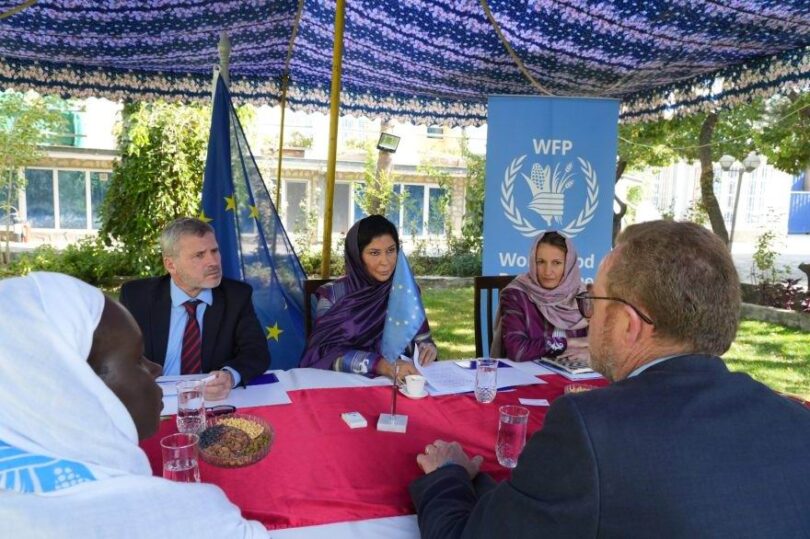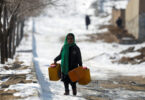KABUL (Khaama Press): The European Union has announced an additional allocation of EUR 9.9 million to bolster the United Nations World Food Programme (WFP) efforts. Over two years, this funding is specifically directed towards supporting nearly 2 million primary school students across provinces, including Nangarhar, Nuristan, Ghor, Farah, and Jawzjan.
According to the statement, this financial injection enables the WFP to extend its reach, benefiting nearly 900,000 boys and 850,000 girls enrolled in primary schools. These students will receive nutritious school snacks, enhancing their access to vital sustenance for their educational journey.
Raffaella Iodice, the EU Chargée d’Affaires to Afghanistan, said, “Learning with an empty stomach is hard. The school feeding programme in Afghanistan helps increase enrolment, attendance and retention in primary school for boys and girls. School feeding improves learning abilities and the well-being of the children who are the next generation of Afghanistan.”
Meanwhile, the deputy country director of World Food Program Afghanistan, Harald Mannhardt, stated,” Many children in Afghanistan come to school without breakfast, and WFP’s school feeding programme provides their first meal of the day. School feeding is an integral part of our activities in the country, where 15 million people – or one-third of the population – do not know where their next meal will come from.”
According to the statement, most school children, amounting to a planned 1.4 million, are set to benefit from a nutrition boost during their morning school break. They will receive locally produced fortified biscuits, each weighing 100 grams. These biscuits pack a nutritional punch, containing 450 calories, a mix of fats, proteins, and a rich assortment of vital vitamins and minerals crucial for children’s growth and development.
In parallel, approximately 340,000 additional children will have their daily nutritional needs met through a ration of bread composed of wheat and soy flour combined with dried fruits and nuts. This nourishing bread is freshly baked in a local bakery, underscoring the project’s commitment to supporting the local economy by sourcing ingredients from Afghan farmers.
Furthermore, 480,000 female students will receive take-home rations of fortified vegetable oil as part of the initiative. This contributes to the well-being of the students and extends its benefits to their families, enhancing the overall nutritional security of households in the region.
For over two decades, WFP’s school feeding program in Afghanistan has been bridging food security improved nutrition, and education for school-aged children. In 2022, over 700,000 primary school students received snacks, with an additional 200,000 girls benefiting from take-home rations. The European Union, a long-standing supporter, has added EUR 9.9 million to its contributions, building on a prior EUR 11 million donation to WFP’s school feeding program.







